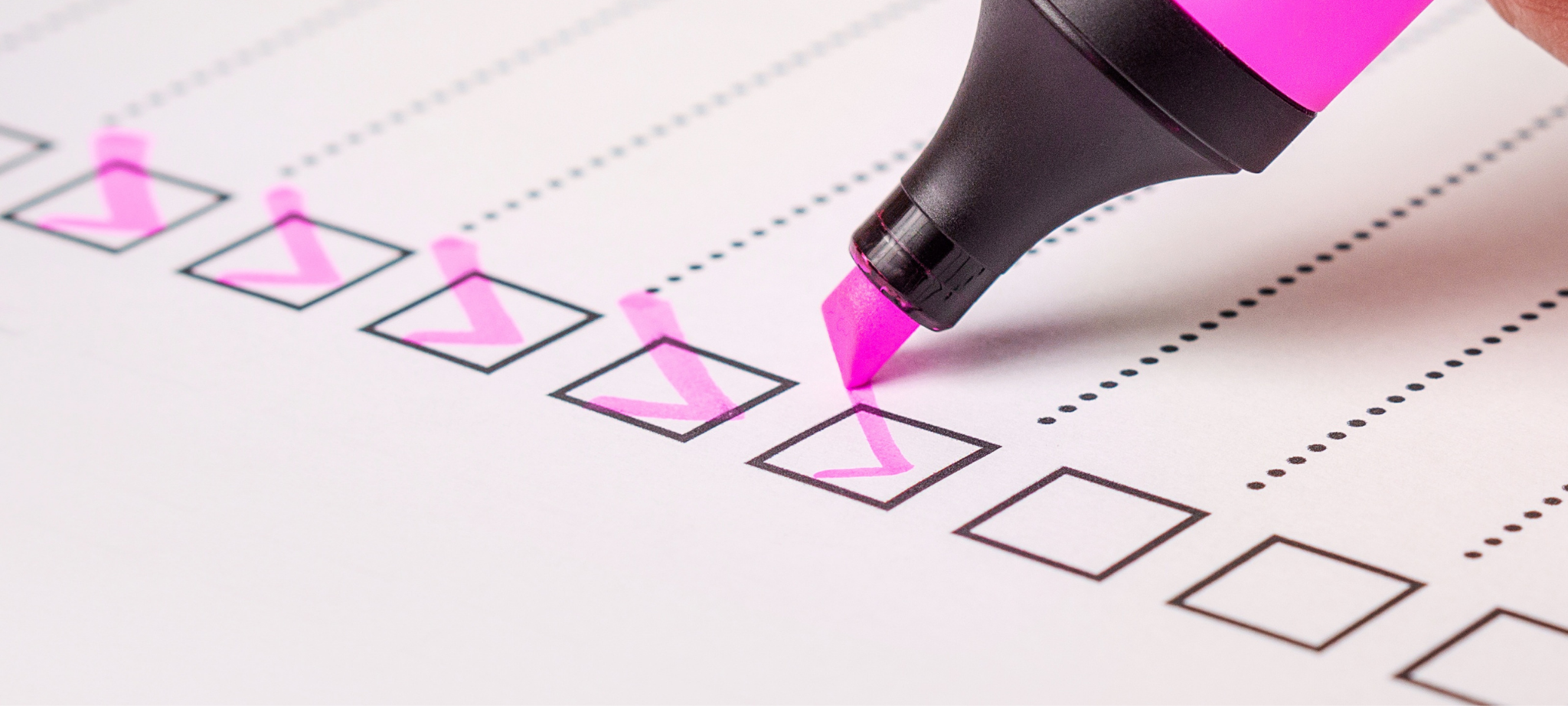One of the most important aspects of event planning is creating and following a detailed checklist. This will ensure that you don't forget any important details and that your event runs smoothly. By customizing your event planning checklist to fit your specific needs, you can be sure that all the bases are covered.
This guide will help you create a customized pre event planning checklist that will meet your unique needs. We'll cover everything from venue selection to creating a timeline for your event.
So, whether you're planning a corporate event or a virtual conference , use this guide to make sure your event goes off without a hitch.
What is Event Planning?
Event planning is the process of organizing a meeting or event, typically including the tasks of reserving space, arranging transportation, and securing entertainment.
Event planners often work with clients to determine their needs and budget, then develop a plan that will make the event successful. Planners may also be responsible for coordinating on-site activities and ensuring that all elements of the event run smoothly.
Benefits of Event Planning
In addition to the obvious benefit of helping to organize and coordinate an event, event planners can also provide valuable support and advice to clients throughout the planning process.
They can help identify potential problems, offer solutions, and provide guidance on everything from budgeting to marketing. Event planners can also often secure discounts from vendors and suppliers, which can help to keep costs down.
Additionally, event planners with a good working relationship with local venues and service providers can be valuable resources when planning events.
What Are The Elements Of Event Planning?
The elements of event planning are many and varied. However, some key elements are essential for any successful event. These elements include:
- A clear understanding of the client's needs and objectives
- A realistic budget
- A list of all of the elements that are necessary for the event
- A timeline for the planning process
- A list of all of the people who need to be contacted to make the event a success
- A plan for marketing the event
- A contingency plan for dealing with problems that may arise
- A post-event evaluation
By including all of these elements in the event planning process, event planners can be sure that they are covering all bases and giving their clients the best possible chance of success.
What Are The Seven Components Of Event Planning?
Following are the seven components of event planning;
- Event Infrastructure: This includes elements such as the venue, stage, sound and lighting, and AV equipment. It also consists of the event website, registration page, and ticketing system.
- Audience: The audience is the group of people who will be attending your event. This includes their demographics (age, gender, location, etc.), interests, and needs.
- Attendees: Attendees are the people who register for and attend your event. This includes their contact information, dietary restrictions, accessibility needs, and other special requirements.
- Organizers: Organizers are the people who are responsible for planning and executing the event. This includes the event planner, venue manager, and other staff or volunteers involved in the event.
- Venue: The venue is the location where the event will be held. This includes the physical address, capacity, amenities, and other relevant information about the space.
- Media: Media is any type of publicity that is generated for the event. This includes press releases, social media posts, blog articles, and other marketing materials.
- Evaluation: After the event, it is important to evaluate its success. This includes surveys, interviews, feedback forms, and other data that can help you improve future events.
By considering all of these elements, you can be sure that your event planning process is comprehensive and that you are giving your event the best chance of success.
Why Is It Essential To Have A Checklist?
A checklist is an essential tool for event planners, as it helps ensure that all event elements are taken care of. By having a checklist, event planners can ensure that they haven't forgotten anything essential and everything is running smoothly.
A checklist can also be a valuable tool for clients, as it can help them understand what needs to be done to make their event successful. Additionally, a checklist can help keep everyone on track during the planning process and ensure that no one forgets any important details.
What Should Be Included In A Pre Event Checklist?
- Establish your event goals and objectives: What do you hope to achieve with your event? This will help you to determine the overall tone and feel of the event and what elements should be included to make it a success.
- Select your event's date: Once you have determined your goals and objectives, you will need to select a date for your event. It is essential to consider the time of year and any potential conflicts that might arise. For example, if you are planning a corporate event, you must avoid dates that coincide with major holidays or other company events.
- Develop an event master plan: This should include all of the elements you want to have in your event and a timeline for each element. This will help you to ensure that everything is taken care of in a timely manner and that nothing is forgotten.
- Create a budget: It's an essential step in event planning, as it will help to determine what elements you can afford to include in your event. It is essential to be realistic when developing your budget, as unexpected costs can quickly arise.
- Select a venue: Once you have determined your budget, you will need to select a venue for your event. Some factors to consider when choosing a venue include but are not limited to its location, capacity, and amenities.
- Secure vendors and suppliers: Once you have selected your venue, you will need to secure vendors and suppliers for your event. This includes everything from catering to entertainment. It is essential to get bids from different vendors and suppliers to ensure you get the best possible price.
- Develop a marketing plan: To ensure that your event is successful, you will need to develop a marketing plan. This should include elements such as promotion, advertising, and public relations.
- Create an event website: An event website is a valuable tool for promoting your event and providing information to attendees. Your website should include information such as the date and location of the event, as well as a schedule of events.
- Send out invitations: Once you have developed your marketing plan, you will need to send out invitations to potential attendees. This can be done through email, mail, or social media.
- Prepare on-site materials: On the day of the event, you will need to have on-site materials such as name badges, sign-in sheets, and programs.
- Brand your event and begin publicity: Creating a brand for your event will help it to stand out from other events. This can be done through elements such as logos, colors, and themes. You will also need to begin promoting your event through social media, press releases, and print materials.
- Arrange sponsorships and speakers for your event: Securing sponsorships and speakers for your event can help to make it more successful. This is done by reaching out to potential sponsors and speakers and promoting the event through various channels.
- Launch ticket sales: Ticket sales are an essential part of event planning, as they will help cover the event's costs. Tickets can be sold online or through various ticketing platforms.
- Train your staff and volunteers: Staff and volunteers play a vital role in ensuring that your event runs smoothly. They should be appropriately trained in all aspects of the event, such as set-up, tear-down, and customer service.
- Create a day-of schedule: A day-of schedule is a valuable tool for keeping everyone on track during the event. It should include all elements of the event, as well as a timeline for each element.
- Develop a post-event evaluation: A post-event evaluation is a valuable tool for determining the success of your event. It should include elements such as surveys, interviews, and focus groups. Event planning is a complex process that requires careful planning and execution.
What Are Some Tips For Creating A Customized Event Planning Checklist?
When creating a customized event planning checklist, it is important to tailor the checklist to the event's specific needs. This means that the checklist should be made with the client's input and should take into account all of the elements necessary for the event.
It is important to make sure that the checklist is realistic and achievable. This means that it should only include tasks that can be completed within the available timeframe.
It is also important to ensure the checklist is organized and easy to understand. This will make it easier for everyone involved in the event to follow and help ensure that nothing is forgotten.
When Should You Start Planning An Event?
The answer to this question will depend on the size and scope of the event. It is generally advisable to start planning at least six months in advance for smaller events. It is often necessary to start planning a year or more for larger events, such as conferences or conventions.
No matter what event you are planning, starting the planning process as early as possible is always important. This will give you the time necessary to make all the necessary arrangements and avoid any last-minute problems.
How Can Oreed Help In Successful Event Planning?
Oreed is the leading event management software that helps you plan and execute successful events. With Oreed, you can manage all of the elements of your event in one place, from the venue to the attendees to the post-event evaluation.
Oreed also offers a comprehensive suite of features to help you successfully plan and execute your event. These features include:
- A user-friendly interface that makes it easy to manage all aspects of your event
- A built-in registration system that allows attendees to register for your event online
- A powerful search engine that makes it easy to find the right venue for your event
- A comprehensive list of vendors that can provide everything you need for your event
- An interactive map that helps attendees find their way around the event
- A mobile app that gives attendees access to all of the event information they need
- A post-event evaluation tool that allows you to assess the success of your event
With Oreed, you can be sure your event will succeed. Contact us today to learn more about our event management software and how it can help you plan and execute a successful event.






